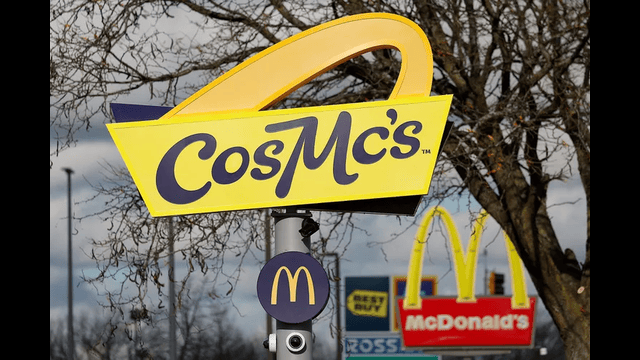
Tuesday's announcement confirmed the flagship restaurant's location at the corner of Yonge and Dundas Sts in Toronto. (Photo Illustration by Scott Olson/Getty Images) (Scott Olson via Getty Images)
Shake Shack's announcement on Tuesday regarding its inaugural Canadian location in downtown Toronto has stirred excitement among loyal patrons, but it's unlikely to rattle other major fast-food chains in the country.
The chain's tweet last year teasing its Canadian expansion suggested an unprecedented level of demand for the New York City-born burger joint. However, industry experts suggest that Shake Shack's modest plan to open 35 restaurants by 2035 won't significantly impact Canada's bustling quick-serve restaurant (QSR) sector.
Mark Satov, a strategy consultant, downplays the significance of Shake Shack's entry, stating, "This is just another offering that's kind of cute for some segment of the population. I don't think anybody cares. There's lots of room."
Shake Shack had initially revealed its plans for Canada in March 2023. Tuesday's confirmation disclosed the flagship restaurant's location at Yonge and Dundas in Toronto, along with the introduction of a "Toronto-exclusive" shake featuring maple salted pretzel flavor. However, the precise opening date remains unspecified.
Business Model:
Shake Shack's strategy for global expansion revolves around partnering with local investors. While its U.S. outlets are a mix of licensed and company-owned operations, all non-U.S. outlets are operated by licensed partners. By collaborating with local investors eager to associate with the brand's prestige, Shake Shack assumes minimal risk while gaining access to individuals well-versed in the local market dynamics.
According to Satov, partnering with local investors offers Shake Shack insight into various aspects of the Canadian market, such as real estate, retail dynamics, and labor conditions. In Canada, Shake Shack's partners include Osmington, a Toronto-based commercial real estate and investment company owned by media magnate David Thomson, and Harlo Entertainment, a division of Harlo Group specializing in hospitality properties.
In conclusion, while Shake Shack's arrival in Canada has generated excitement among fans, its impact on the broader fast-food landscape is anticipated to be modest. The chain's expansion strategy, centered on partnering with local investors, allows it to navigate the Canadian market while minimizing risks associated with international expansion.















